Table of Contents
Cookies. Brownies. Candies. Are these the foods that come to mind when you think about sugar? What about fruits? Vegetables? Whole grains? While you may prefer to reach for the cake over the apple, you’re not getting the same sugar in both. One is health-promoting; the other risks a long list of health problems.
The good news is that eating sugar is not all bad, and cutting down on the wrong sugars is certainly possible. Read on to discover what sugar is, what it does to the body, and how you can make the right choices so that sugar works for you, not against you.
What is refined sugar, and why is it not good for you?
All sugars are not created equal.
We can broadly think of sugars as natural or refined, with refined sugars leading to the negative health effects associated with excess sugar consumption.
Natural sugar vs added sugar: What are the differences?
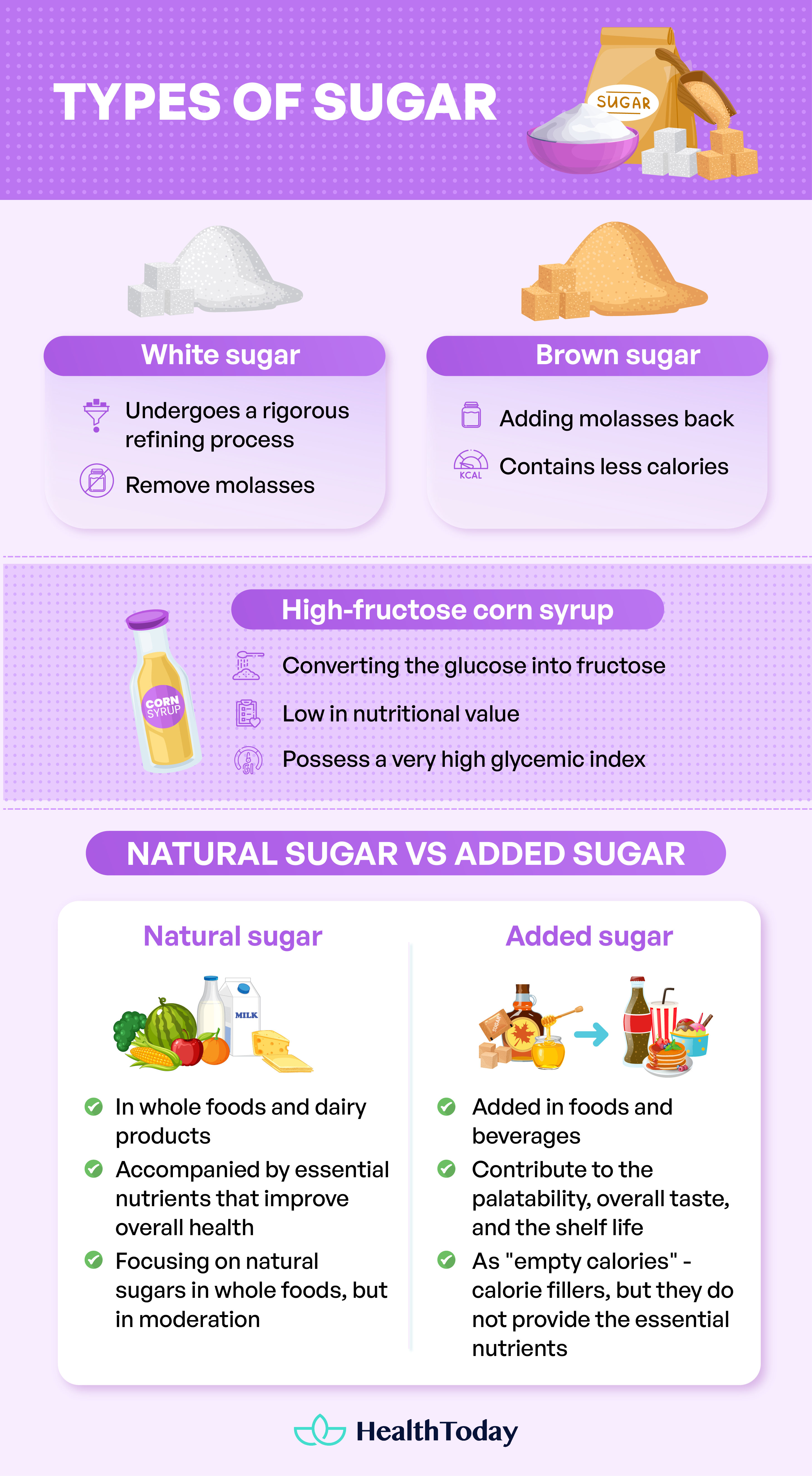
Natural sugars occur in nature without being processed by humans. When you eat natural sugars found in fruits, vegetables, and whole grains, you are also getting healthy amounts of vitamins, minerals, fiber, and protein. The presence of these healthy components slows down how fast natural sugars are digested, according to Harvard Health (1). This explains why natural sugars don’t cause rapid spikes in blood sugar and insulin, which are seen when a person consumes processed foods.
On the other hand, there are refined sugars, also called processed sugars. Processing refers to the technique of extracting sugar from plants. According to the Sugar Association, sugar processing involves multiple steps (2). The sugar beet or sugar cane juice is purified from the plant to form a syrup that is then crystallized and dried to produce what we know as table sugar. Table sugar is the ‘added sugar’ that often appears on nutritional labels. It represents the most common form of refined sugar. Examples include white sugar and brown sugar.
High-fructose corn syrup, derived from corn starch, is another popular type of processed sugar. Corn syrup is made into the ‘high-fructose’ variety by adding enzymes that increase the content of a sugar molecule called fructose. Increasing the fructose content of corn syrup makes it sweeter.
Refined sugars such as table sugar and high-fructose corn syrup are added to many packaged foods found on grocery store shelves, such as baked goods, cereals, soft drinks, candy, and ice cream.
So, what’s the big deal with refined sugars?
When you ingest refined sugars, you are not getting the ‘good stuff’ (like vitamins and fiber) that comes with natural sugars. In other words, refined sugars add many calories and increase your blood sugar without providing much nutritional value. Consuming high quantities of refined sugars has been linked to many diseases. Let’s explore these in more detail.

Effects of sugar on the body: Reasons you should quit sugar
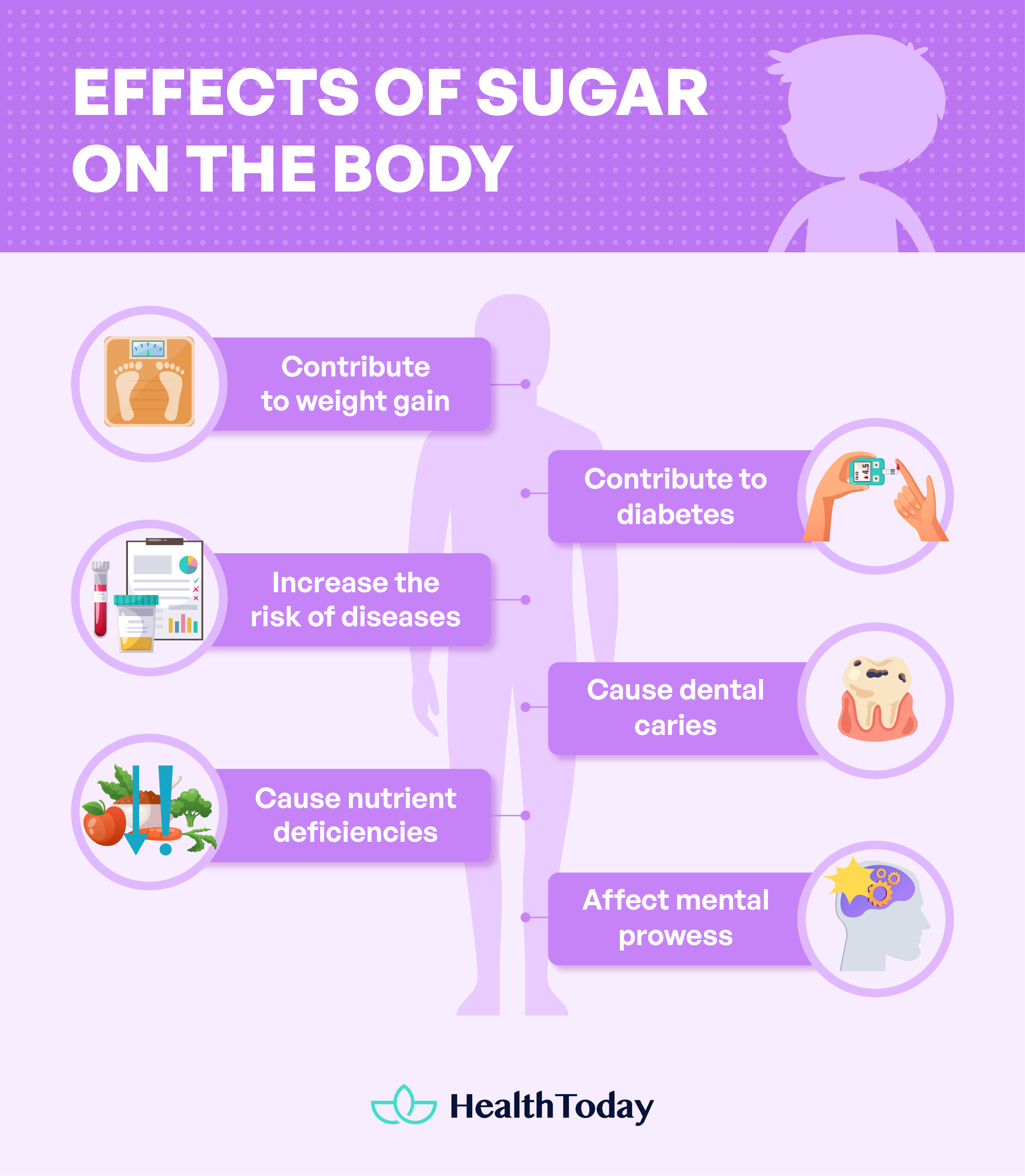

The Centers for Disease Control and Prevention (CDC) recommends that no more than 10 percent of a person’s total daily calories come from added sugars (3). If you consume 2,000 calories per day, added sugar should comprise fewer than 200 of those calories (about 12 teaspoons).
Yet, the average American adult consumes about 270 calories (17 teaspoons) of added sugar per day (4).
You may be tempted to give up healthy sources of natural sugars such as whole fruits, to reduce your overall sugar intake. As humans, we need sugar to survive. Sugar is not the enemy. It’s the wrong kinds of sugar, in the wrong quantities, that cause problems.
A systematic review examining 95 studies showed that consuming high quantities of fruits and vegetables—up to 10 servings per day—is associated with a decreased risk of coronary heart disease, stroke, and death (5). The American Heart Association recommends aiming for 4-5 servings of fruits and vegetables per day (6).
However, the CDC finds that Americans do a poor job of meeting these recommendations (7); they should be consuming more natural sugars, not less!
Let’s switch gears to the real problem: overconsumption of refined sugars. The following are some health problems associated with high consumption of foods containing refined sugars.
Type 2 diabetes
Although we tend to think of too much sugar as increasing the risk of diabetes, consuming up to 200 g of fruit daily actually protects against type 2 diabetes (8). Remember, natural sugars are not the enemy. It’s the processed sugars you need to be cautious about.
Unlike natural sugars, processed sugars are absorbed quickly into the bloodstream, spiking blood sugar levels. Over time, insulin levels cannot keep up with these persistently elevated blood sugar levels, leading to insulin resistance and type 2 diabetes.
Multiple studies have shown a strong association between refined sugar intake and the risk of type 2 diabetes (9, 10, 11).
Obesity
Obesity affects 42 percent of the U.S. population over age 20 (12). Refined sugars contribute largely to this statistic.
Children and adolescents are more likely to be overweight (2.57 times more likely) or obese (1.77 times more likely) if their daily refined sugar intake makes up at least 10 percent of their total calories compared to those who consume less than 10 percent of their daily calories from sugar (13). Empty calories from sugar-sweetened beverages especially lead to overweight and obesity in both children and adults (14, 15).
Heart disease
About 695,000 people in the United States die from heart disease each year, according to the CDC (16). Heart disease kills one person in the U.S. every 33 seconds.
Research shows that high intake of refined sugars significantly increases the risk of developing and dying from heart disease (17, 18, 19). Limiting consumption is crucial to protecting your heart.
Cancer
Diets high in refined sugar increase the risk of developing cancer, which kills 10 million people worldwide, according to the World Health Organization (20)
One study showed that the greater the consumption of sugary beverages, the higher the risk of cancer and death (21). It is unclear which cancers are most likely to develop with excessive sugar intake. However, the risk appears to be increased for certain cancers, including those affecting the gastrointestinal tract, breast, endometrium, and kidney (22).
Other health risks
The list of health problems associated with high intake of refined sugars is long. We’ve covered some major links, but other diseases shown to be related to refined sugar consumption include:
- Mental health disorders (23)
- Dementia (24)
- Non-alcoholic fatty liver disease (25)
- Cavities (26)
- Stroke (27)
- Acne (28)
Therefore, curbing your intake of refined sugars goes a long way toward optimizing your health and longevity.





Signs of excessive sugar intake: What you should know
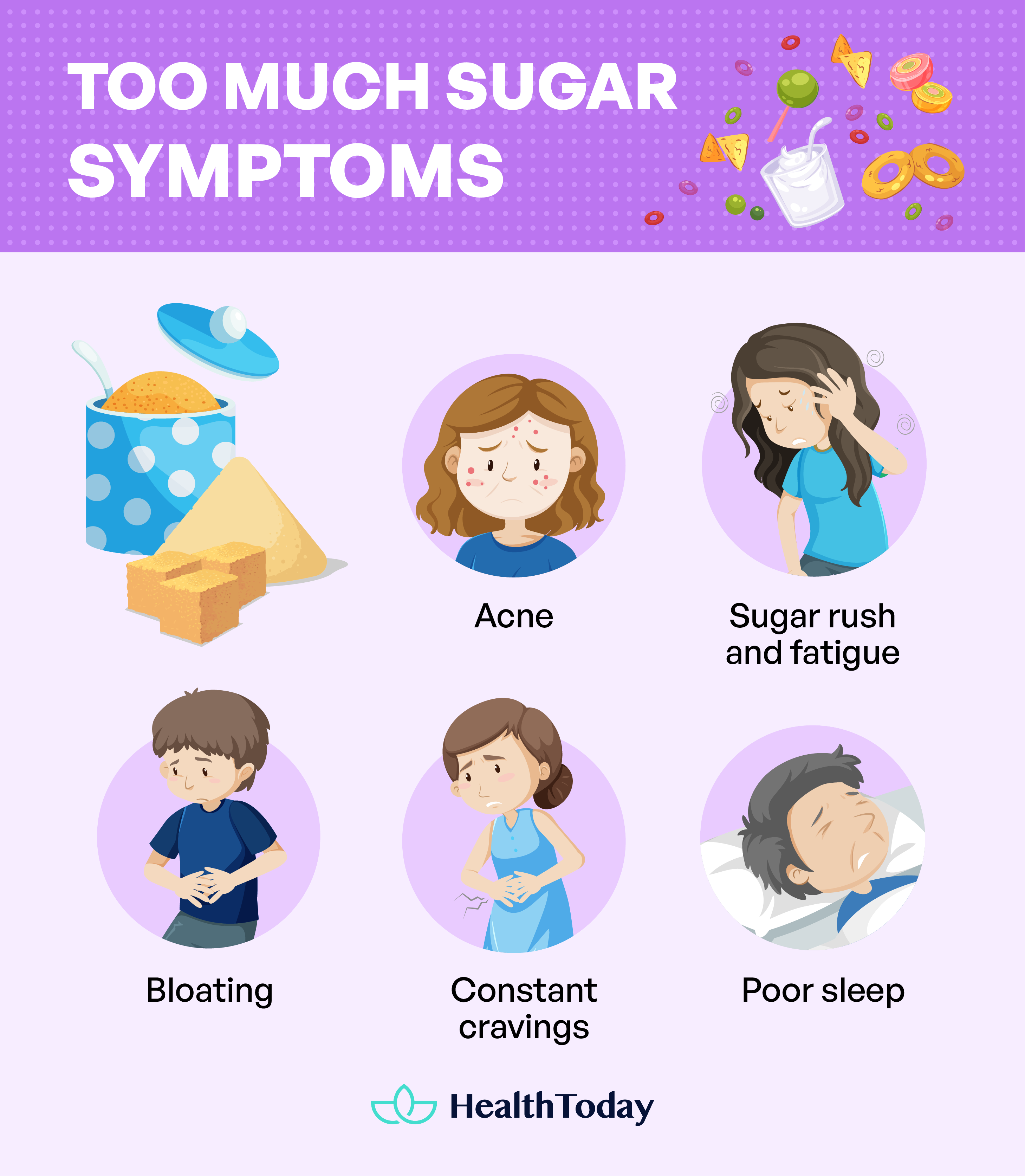

What happens if you eat too much sugar?
Most people are familiar with the ‘sugar high’ they get from consuming too much refined sugar. This refers to an increase in alertness, energy, and even jitteriness that comes from having too much sugar available to your cells all at once. However, the decline in blood sugar levels that occurs in the hours following a ‘sugar high’ can lead to a ‘sugar crash’ that makes you feel sleepy and sluggish.
Some signs of eating too much sugar include:
- Mood swings
- Difficulty concentrating, or ‘brain fog’
- Rapid fluctuations in energy levels
- Craving more sugar
- Weight gain
- Poor sleep
- High blood pressure
Consuming too much sugar over a long period can lead to prediabetes and type 2 diabetes. Prediabetes usually does not present with symptoms, but 70 percent of individuals with prediabetes will eventually progress to diabetes (29). Diabetes can cause any of the following:
- Increased thirst
- Frequent urination
- Vision changes
- Numbness or tingling
- Wounds that heal slowly
- Unintended weight loss
If you experience any of these symptoms, it’s important to speak with your doctor to determine whether high consumption of refined sugars may be at the root of your issues.





How to reduce sugar intake?
If you are looking to cut back on your sugar intake and don’t know where to start, here are a few practical suggestions adapted from the American Heart Association (30):
- Swap out sugary beverages for water (preferred) or diet varieties.
- Substitute packaged desserts for fresh fruit.
- Cut down on the serving sizes of your sweets.
- Read nutritional labels and choose food items with lower added sugars.
- Replace table sugar with low- and no-calorie sweeteners.
Practicing mindful eating has also been shown to help people reduce their consumption of sweets (31).
Some people may benefit from cognitive behavioral therapy, a form of talk therapy that helps reframe distorted thoughts and engage in healthier behaviors. One study showed that cognitive behavioral therapy reduced the consumption of sugary drinks among adolescents with obesity (32).
Keep in mind that for some people, reducing processed sugar from their diet can lead to unpleasant physical and mental symptoms as the brain and body adjust to a healthier way of living. This is particularly true for those who are accustomed to consuming refined sugar regularly. Sugar is addictive. It impacts the brain’s reward system, stimulating the release of dopamine (33). This, in turn, induces cravings and keeps you wanting more.
As long as you stick with the process, you will begin to feel better over time. Be encouraged, knowing that every time you eat fresh fruit over that packaged cookie, your brain and body are one step closer to achieving optimal health and well-being.





What to do after eating too much sugar?
Once sugar is in your body, there is nothing more to do except wait for your body to use up the sugar. Unless you have diabetes, consuming too much sugar at one time is usually not harmful. You may experience a ‘sugar crash,’ but you will recover with time.
How many grams of natural sugar per day?
There are no official guidelines for limiting natural sugar intake. Unlike refined sugars, natural sugars are generally not harmful to health. You should aim for at least 400 grams (or 5 servings) of fruits and vegetables containing natural sugars per day.
How high does your sugar have to be to go into a diabetic coma?
There is no specific blood sugar value that determines when a person with diabetes might experience a diabetic coma. However, diabetic ketoacidosis can occur when blood sugar levels rise above 250 mg/dl, at which point the risk of coma increases.
How long does it take cinnamon to lower blood sugar?
While more research is needed, a 2024 study showed that participants with prediabetes as well as overweight or obesity achieved blood sugar reductions after taking 4 g of cinnamon daily for four weeks (34).
How bad is candy for you?
Many candies contain refined sugars without much nutritional value. Refined sugars have been linked to a variety of diseases. It is best to limit your consumption of candy containing added sugars.
Summary
Sugar is a necessary ingredient for optimal functioning of the human body. Natural sugars found in fruits, vegetables, and whole grains promote health and longevity. On the contrary, refined sugars—also called processed or added sugars—increase the risk of a number of diseases, such as type 2 diabetes, obesity, heart disease, and cancer.
Cutting back on refined sugars can be challenging but is doable with the right mindset and approach. Small dietary and lifestyle modifications can add up and eventually make a big difference towards living a healthier life.






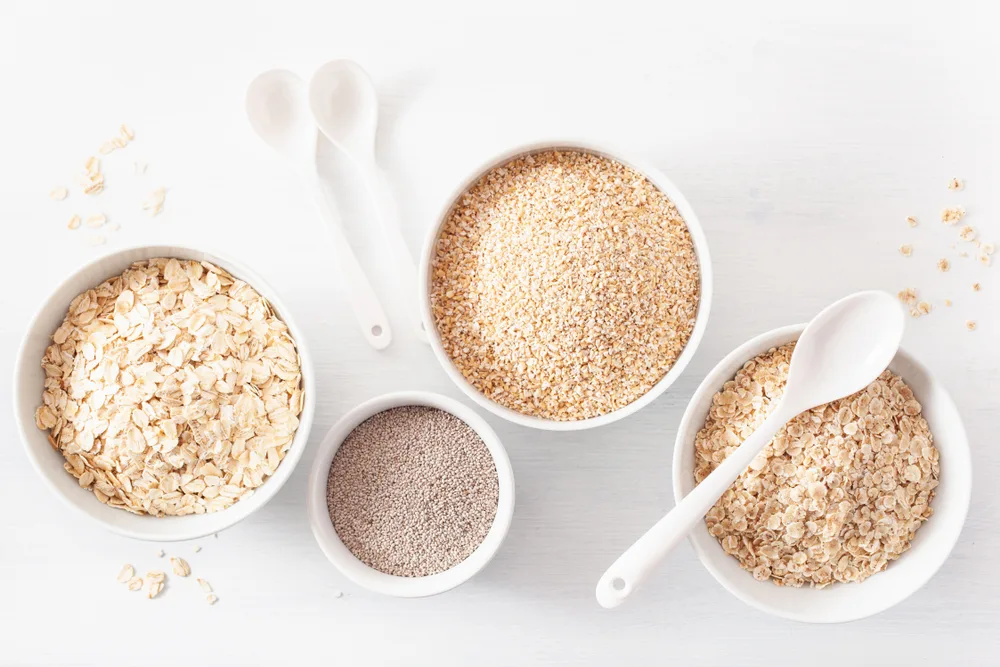








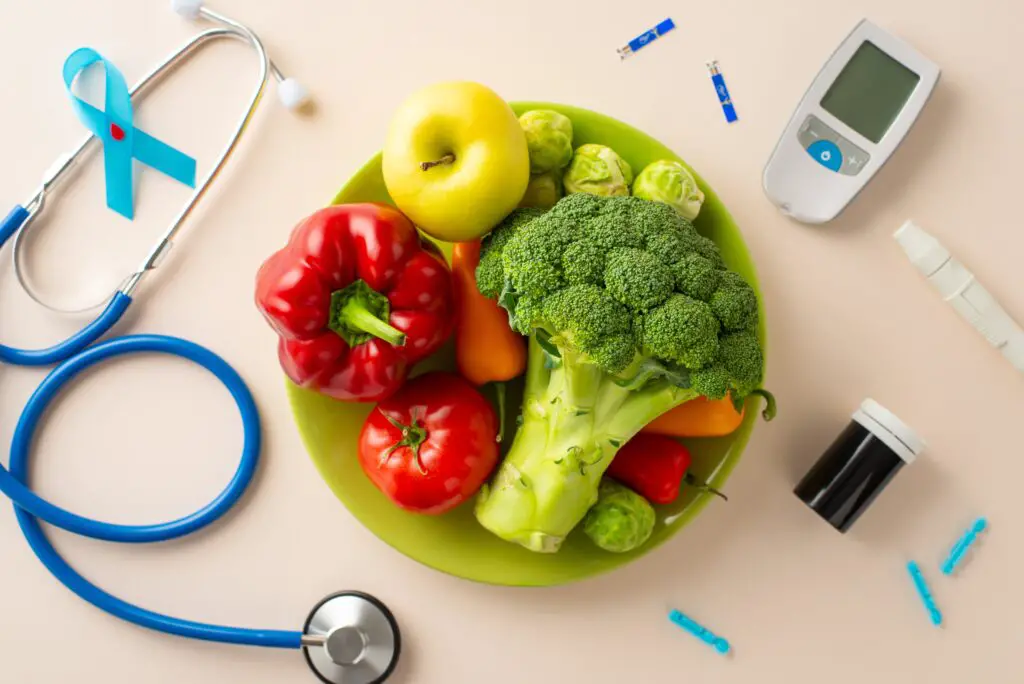

Comments
0